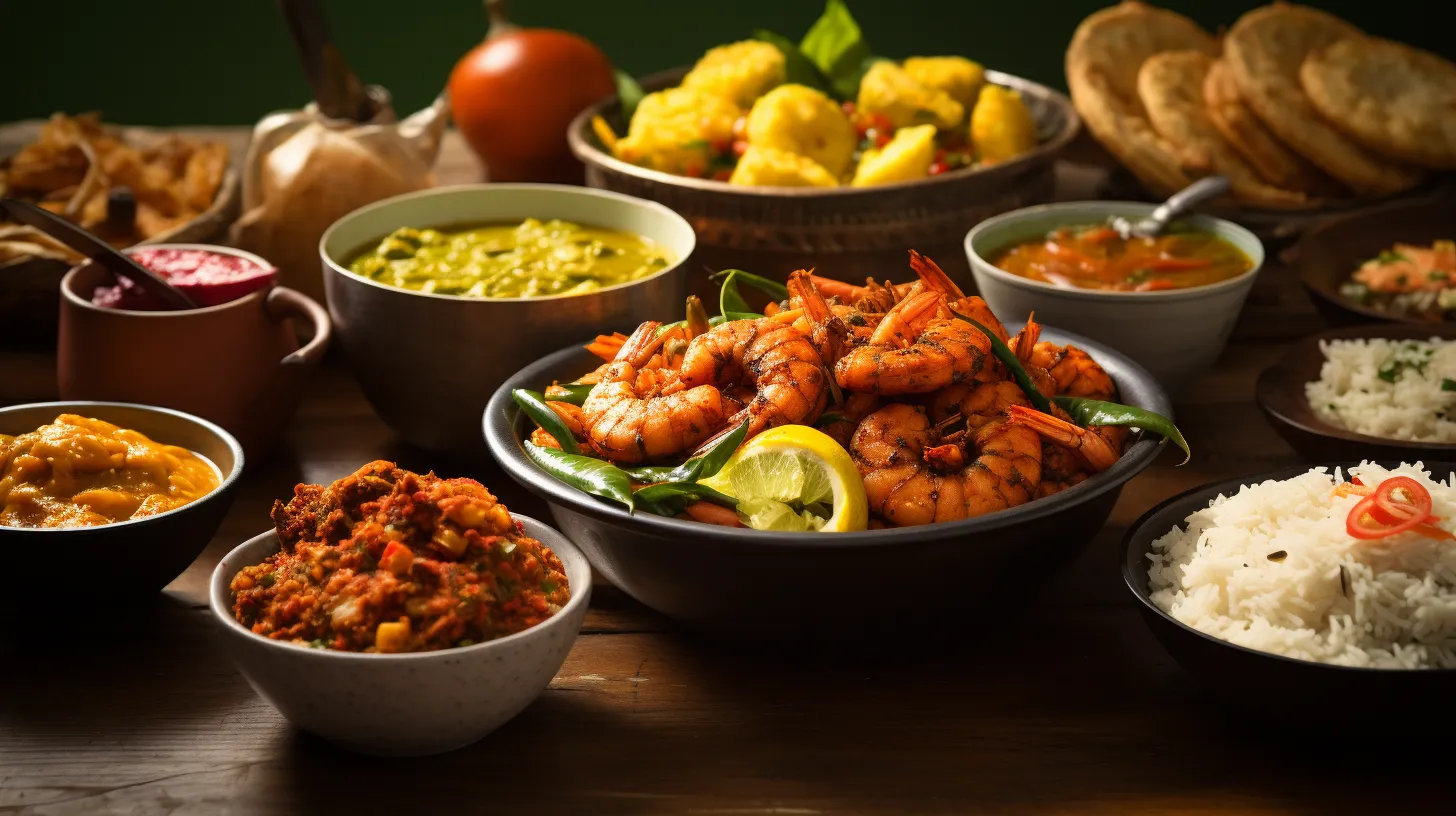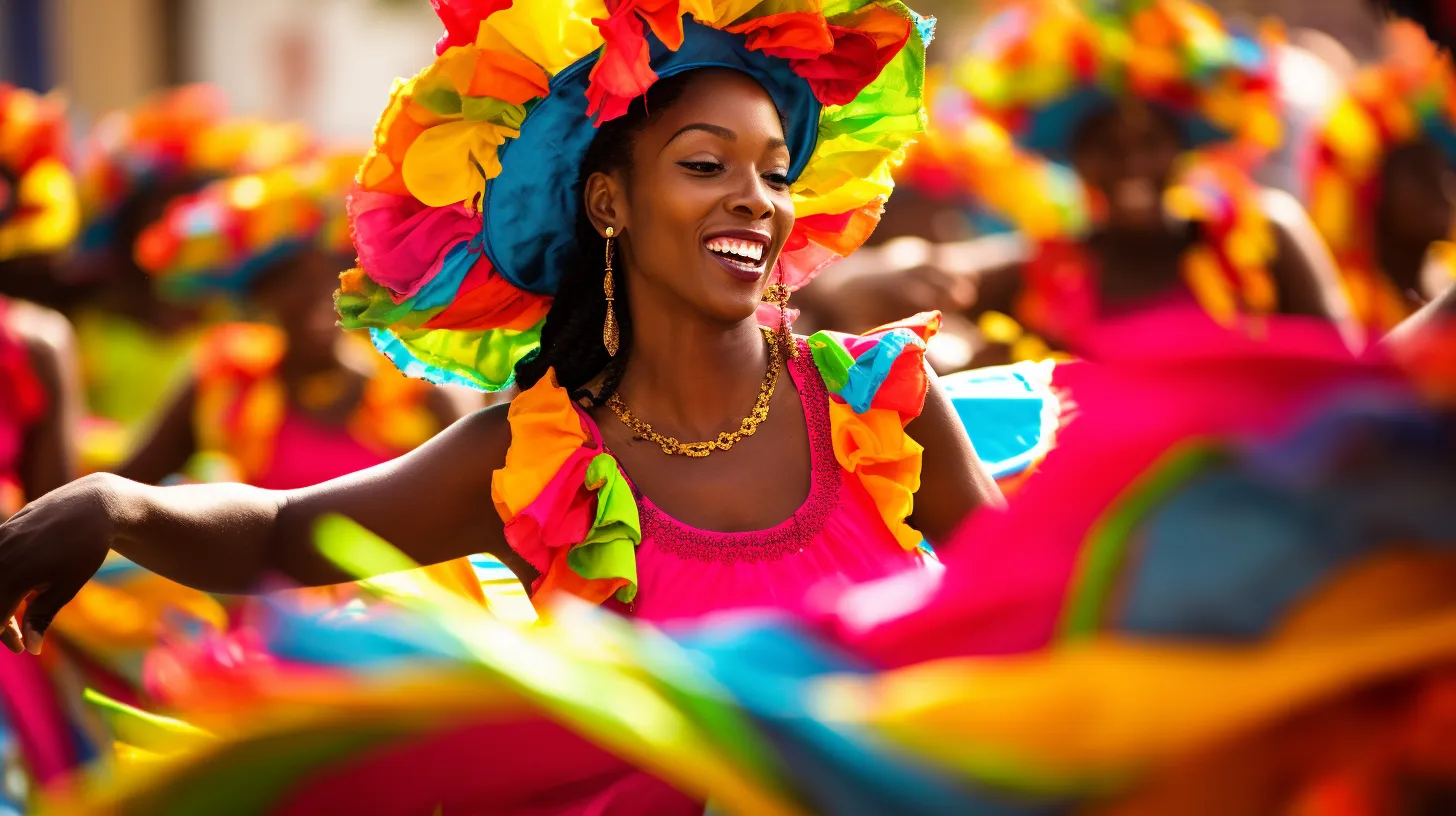Haiti is famous for its resilient people who have overcome significant challenges, including the 2010 earthquake and ongoing hunger crisis. The country’s beautiful beaches, majestic mountains, and delicious cuisine also contribute to its global reputation.
Additionally, as the first independent black republic, Haiti has a rich history of freedom and is celebrated for its vibrant art scene, music, and dance. The natural landscapes of the country, along with its cultural heritage and lively festivals, further add to its renown.
Haitian Cuisine

Haitian cuisine is known for its blend of French, Spanish, Taino, and African influences, creating a unique culinary experience that reflects the country’s rich history and cultural heritage.
This island country’s cuisine is a delightful fusion of flavors, drawing from its diverse cultural influences. The use of Creole cooking style, local spices, and tropical fruits like pineapples, coconuts, and mangoes contribute to the distinctive and delicious Haitian cuisine.
Staples such as potatoes, rice, corn, beans, and plantains form the foundation of many traditional dishes. With a touch of French sophistication, Haitian cuisine offers a blend of spicy and rustic dishes. The country’s delicacies, including French-inspired cheeses and meats, are considered symbols of wealth and power, adding to the allure of Haitian cuisine.
It’s no wonder that Haiti’s culinary offerings make it a must-visit tourist destination for food enthusiasts.
Historical Figures

The Haitian Revolution was led by Toussaint Louverture, a key historical figure who played a pivotal role in Haiti’s fight for independence. He was a former slave who became a prominent leader and inspired the Haitian people to rise against French colonial rule.
Another important figure is Jean-Jacques Dessalines, who became the first leader of the independent republic of Haiti and designed the country’s first flag. These historical figures were instrumental in shaping Haiti’s destiny as the first independent black republic in the Caribbean.
Their bravery and leadership during the revolution paved the way for Haiti to abolish slavery and establish itself as a sovereign nation. Their legacies continue to be celebrated and honored by the Haitian people, symbolizing the resilience and determination of the nation.
Vibrant Art Scene

Renowned for its vibrant art scene, Haiti showcases a diverse array of colorful paintings and sculptures depicting everyday life, folklore, and spiritual practices. The country’s art reflects the cultural depth and rich history of Haitian culture, often featuring jungle animals, rituals, dances, and gods.
Haiti’s art heritage is deeply rooted in the traditions of its indigenous peoples, and it continues to be a source of pride and inspiration for its citizens. Notably, Haitian musicians, such as Wyclef Jean, have contributed to the global recognition of Haiti’s vibrant arts.
The art scene in Haiti isn’t only visually captivating but also serves as a means of preserving and celebrating the country’s cultural heritage. This makes it a must-see for anyone interested in exploring the creative and dynamic side of Haiti.
Music and Dance

Famous for its vibrant art scene, Haiti also captivates with its prominent features of music and dance, often showcased during festivals like Carnival and Rara. Haitian music and dance are deeply ingrained in the country’s cultural history, reflecting the influences of African, French, and Spanish traditions.
Rara, a style of Carnival music, has become a significant part of Haiti’s musical tradition, featuring vibrant parades and dancing. Nightclubs and large parties called ‘Bal’ are popular during Carnival week, providing opportunities for Haitian musicians to showcase their talents and entertain with lively music and dance.
Celebrations in Haiti often involve exuberant dancing and movement in the streets, highlighting the importance of music and dance in the country’s social and cultural fabric. Dancing is a popular social activity for celebrations, church socials, informal parties, and evenings out with friends, showcasing the integral role of music and dance in Haitian social life.
Natural Landscapes

Haiti boasts miles of breathtaking beaches and a mountainous landscape, offering visitors unique geographical vistas and the chance to explore diverse natural beauty.
As the western portion of the island of Hispaniola, Haiti’s mountain ranges, including the Massif de la Hotte, provide stunning panoramic views and opportunities for outdoor adventure. The country’s tropical climate supports lush mountain forests and diverse wildlife, making places like La Visite National Park a must-see for nature enthusiasts.
Additionally, the iconic Citadelle Laferrière, a World Heritage Site, stands as a testament to Haiti’s historical significance and is set against a backdrop of stunning mountain landscapes.
These natural wonders, combined with the country’s vibrant blue and red hues, make Haiti a treasure trove of natural beauty waiting to be explored.



